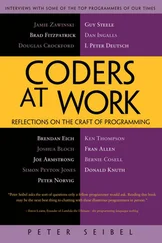Peter Siebel - Practical Common Lisp
Здесь есть возможность читать онлайн «Peter Siebel - Practical Common Lisp» весь текст электронной книги совершенно бесплатно (целиком полную версию без сокращений). В некоторых случаях можно слушать аудио, скачать через торрент в формате fb2 и присутствует краткое содержание. Год выпуска: 2005, ISBN: 2005, Издательство: Apress, Жанр: Программирование, на английском языке. Описание произведения, (предисловие) а так же отзывы посетителей доступны на портале библиотеки ЛибКат.
- Название:Practical Common Lisp
- Автор:
- Издательство:Apress
- Жанр:
- Год:2005
- ISBN:1-59059-239-5
- Рейтинг книги:4 / 5. Голосов: 1
-
Избранное:Добавить в избранное
- Отзывы:
-
Ваша оценка:
- 80
- 1
- 2
- 3
- 4
- 5
Practical Common Lisp: краткое содержание, описание и аннотация
Предлагаем к чтению аннотацию, описание, краткое содержание или предисловие (зависит от того, что написал сам автор книги «Practical Common Lisp»). Если вы не нашли необходимую информацию о книге — напишите в комментариях, мы постараемся отыскать её.
Practical Common Lisp — читать онлайн бесплатно полную книгу (весь текст) целиком
Ниже представлен текст книги, разбитый по страницам. Система сохранения места последней прочитанной страницы, позволяет с удобством читать онлайн бесплатно книгу «Practical Common Lisp», без необходимости каждый раз заново искать на чём Вы остановились. Поставьте закладку, и сможете в любой момент перейти на страницу, на которой закончили чтение.
Интервал:
Закладка:
(defclass html-pretty-printer ()
((printer :accessor printer :initarg :printer)
(tab-width :accessor tab-width :initarg :tab-width :initform 2)))
Now you can implement methods specialized on html-pretty-printeron the eight generic functions that make up the backend interface.
The FOO processors use the raw-stringfunction to emit strings that don't need character escaping, either because you actually want to emit normally reserved characters or because all reserved characters have already been escaped. Usually raw-stringis invoked with strings that don't contain newlines, so the default behavior is to use emit/no-newlinesunless the caller specifies a non- NILnewlines-pargument.
(defmethod raw-string ((pp html-pretty-printer) string &optional newlines-p)
(if newlines-p
(emit (printer pp) string)
(emit/no-newlines (printer pp) string)))
The functions newline, freshline, indent, unindent, and toggle-indentingimplement fairly straightforward manipulations of the underlying indenting-printer. The only wrinkle is that the HTML pretty printer generates pretty output only when the dynamic variable *pretty*is true. When it's NIL , you should generate compact HTML with no unnecessary whitespace. So, these methods, with the exception of newline, all check *pretty*before doing anything: [315] Another, more purely object-oriented, approach would be to define two classes, perhaps html-pretty-printer and html-raw-printer , and then define no-op methods specialized on html-raw-printer for the methods that should do stuff only when *pretty* is true. However, in this case, after defining all the no-op methods, you'd end up with more code, and then you'd have the hassle of making sure you created an instance of the right class at the right time. But in general, using polymorphism to replace conditionals is a good strategy.
(defmethod newline ((pp html-pretty-printer))
(emit-newline (printer pp)))
(defmethod freshline ((pp html-pretty-printer))
(when *pretty* (emit-freshline (printer pp))))
(defmethod indent ((pp html-pretty-printer))
(when *pretty*
(incf (indentation (printer pp)) (tab-width pp))))
(defmethod unindent ((pp html-pretty-printer))
(when *pretty*
(decf (indentation (printer pp)) (tab-width pp))))
(defmethod toggle-indenting ((pp html-pretty-printer))
(when *pretty*
(with-slots (indenting-p) (printer pp)
(setf indenting-p (not indenting-p)))))
Finally, the functions embed-valueand embed-codeare used only by the FOO compiler— embed-valueis used to generate code that'll emit the value of a Common Lisp expression, while embed-codeis used to embed a bit of code to be run and its result discarded. In the interpreter, you can't meaningfully evaluate embedded Lisp code, so the methods on these functions always signal an error.
(defmethod embed-value ((pp html-pretty-printer) value)
(error "Can't embed values when interpreting. Value: ~s" value))
(defmethod embed-code ((pp html-pretty-printer) code)
(error "Can't embed code when interpreting. Code: ~s" code))
| Using Conditions to Have Your Cake and Eat It Too |
|
An alternate approach would be to use
when However, if First define some error classes that you can signal when
Now you can implement
Now you can do something like this:
and you'll get dropped into the debugger with this message:
If you invoke the
Then, as a convenience, you can provide restart functions—functions that invoke the |
Интервал:
Закладка:
Похожие книги на «Practical Common Lisp»
Представляем Вашему вниманию похожие книги на «Practical Common Lisp» списком для выбора. Мы отобрали схожую по названию и смыслу литературу в надежде предоставить читателям больше вариантов отыскать новые, интересные, ещё непрочитанные произведения.
Обсуждение, отзывы о книге «Practical Common Lisp» и просто собственные мнения читателей. Оставьте ваши комментарии, напишите, что Вы думаете о произведении, его смысле или главных героях. Укажите что конкретно понравилось, а что нет, и почему Вы так считаете.








